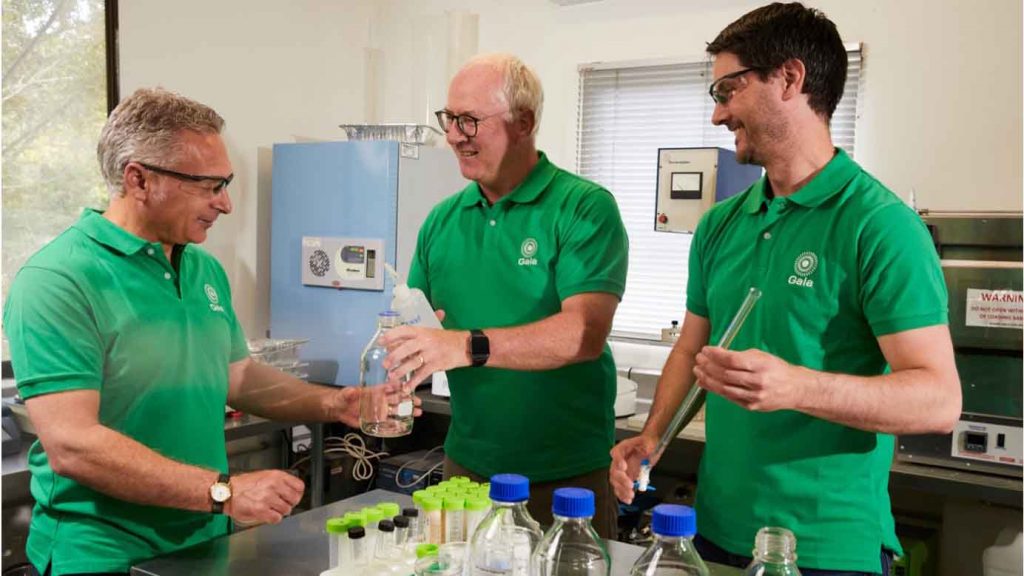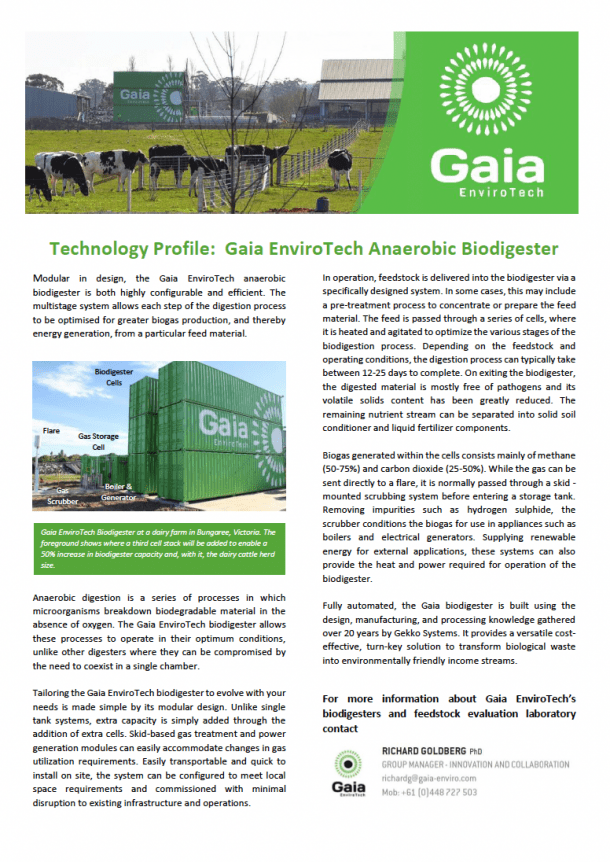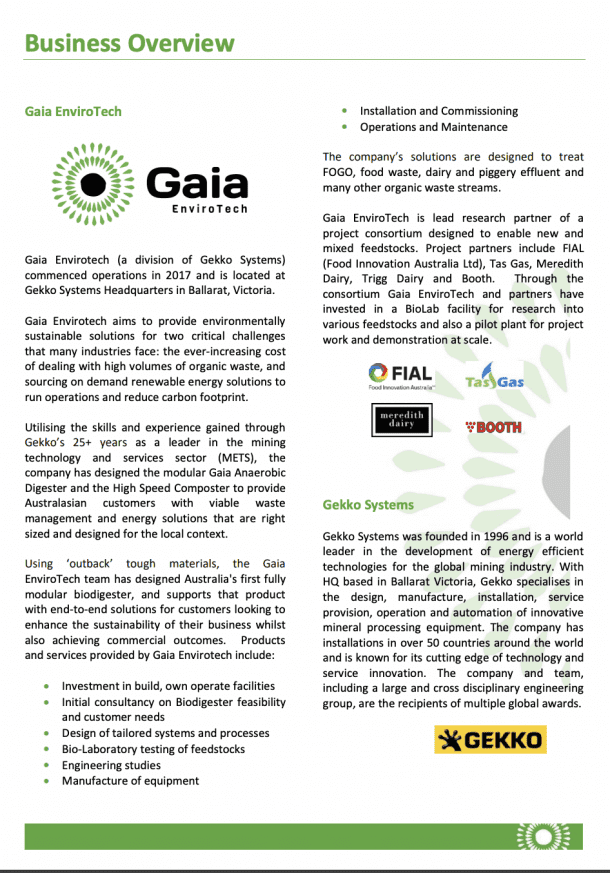
Organic Waste management solution provider, Gaia EnviroTech has developed a fully functional laboratory facility, that supports the optimisation of organic waste processes and accurate modelling capability based on feedstocks to ensure a right-sized solution for every application.
The sustainable treatment of organic waste is critical as it contributes towards reduced greenhouse gas emissions, reduced waste miles and cost, and improved local amenity such as odour.
The laboratory facility includes a bench-top multistage anaerobic digester that enables biomethane potential to be determined, sizing & suitability analysis to be conducted as well as the ongoing performance testing of feedstock for anaerobic digestion. Feedstock tested to date includes cheese whey, permeate, abattoir wastewater, FOGO leachate, waste bakery products, food manufacturing by-products, and agricultural wastes. This lab is an invaluable tool to forecast outputs based on waste assessment and analysis of key aspects critical in the sustainable treatment of organic food-waste.
Gaia EnviroTech received funding from the Food and Agribusiness Growth Centre (FIAL) in 2019 for a 3-year project focussed on exploring various feedstocks for anaerobic digestion. The funding provided support to Gaia EnviroTech to invest in the bio-laboratory facility.
Established by the Australian Federal Government, FIAL collaborates with industry to facilitate the growth of the share of Australian food in the global marketplace including improving environmental credentials.
As part of the project, the Gaia EnviroTech team has built a small-scale, relocatable anaerobic digestion demonstration plant which can be adapted to different waste streams. The demonstration plant is currently located in Tasmania and will run for a period of six to nine months treating predominately cheese whey and permeate. Results will be used to validate laboratory data.
Gaia EnviroTech is one member of a consortium, including Tas Gas, Booth Transport, Trigg Farm and Meredith Dairy, working with FIAL to optimise performance, develop new applications and provide infrastructure for accelerated knowledge sharing. FIAL’s assistance has been invaluable, providing not only financial support but information and connection with members of the food agriculture sector and helping identify a clear pathway for adoption of this game-changing technology in the Australian market.
With the first phase of this project due to conclude in the coming months, the project consortium continues to explore further opportunities to apply this system in a range of other feedstock applications at a commercial scale to support the reduction of carbon emissions in key food manufacturing industries.






Downloadthe Diary Effluent Case study
The system in this case study was installed in November 2018 as a 12-month research and development project to establish viability of an anaerobic digestion plant designed to convert dairy effluent to energy and minimise odour.
You have Successfully Subscribed!